Monetizing mobile: 3 unique app monetization strategies
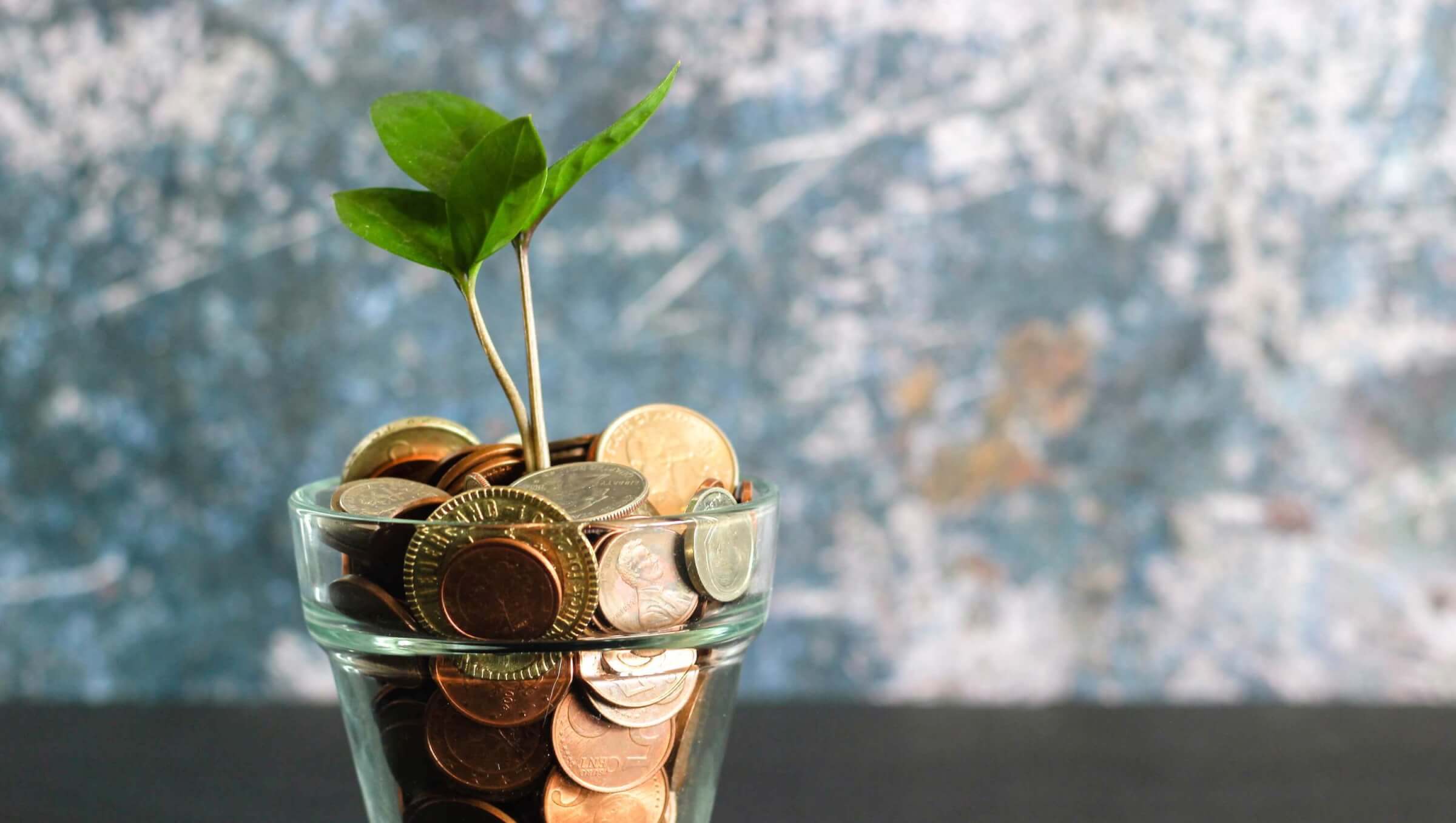
.png)

.png)
Just a few years ago, the idea of paying for an app seemed absurd. Apps were competing to stay relevant, and many forfeited profit as a way to achieve this.
But in recent years, consumers have come around to the concept of paying for the apps they love. According to a TechCrunch report, US mobile app subscription revenue increased by over 20% to $4.6 billion in 2019 across the top 100 apps.
This is great news for app marketers, who for years have dealt with an audience largely conditioned to believe all digital content should be free. Why the gradual change of heart? Apps have officially reached maturity and proven their value.
For a while, the app market felt were a bit touch and go. There were articles predicting the great mobile app apocalypse with the birth of Google instant apps and voice-activated apps. Neither have come to fruition and the app market, especially paid apps, is stronger than ever.
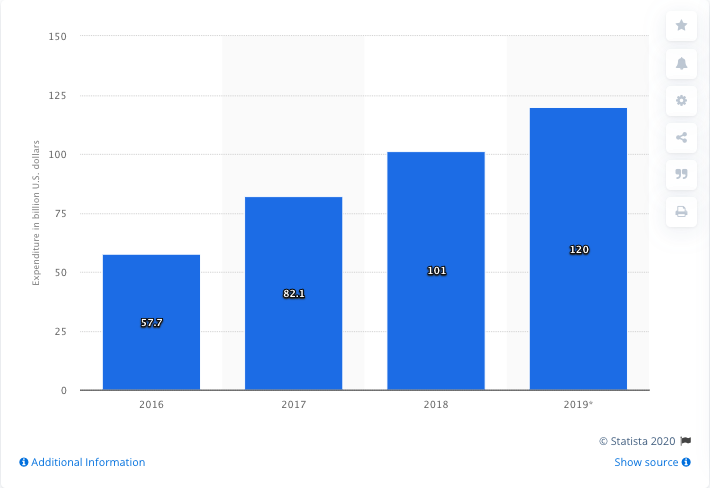
So how do successful apps do it? How can you monetize your mobile app and take advantage of users’ willingness to pay? Keep reading as explore the challenges and opportunities of app monetization below.
Users want a seamless experience, and delivering one isn’t cheap. Opting for the free version of an app often comes at a cost in the form of disruptive ads, third-party data sharing, and a clunky UX. Even so, there are very few apps that can charge a subscription (outside of streaming apps) and prosper. The ones that do tend to already be among the most successful apps within their category.
So how do you get around this major roadblock? For many apps, the answer lies in a freemium model, in which basic features and content remain free for all users and upgrading to a paid plan unlocks additional benefits.
But some apps have chosen a different route. Below, we’ll look at a few examples of free apps that have gotten creative with their monetization strategies:
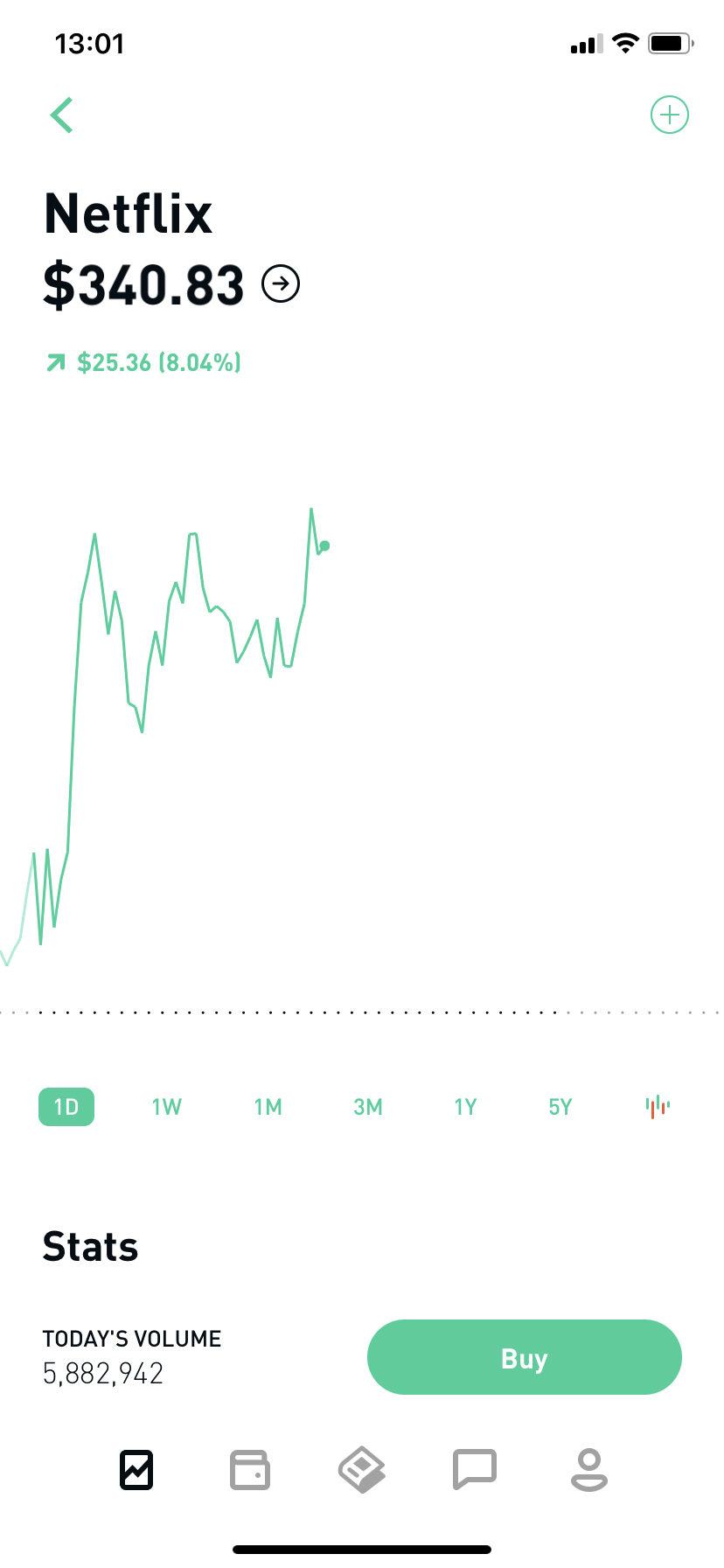
Robinhood is on a mission to “democratize America's financial system and disrupt online investing by providing a platform for the younger generation of jaded investors to trade commission-free.” Their low investment fees have millennials flocking to the app to invest what they can. Basically, they’ve made investing accessible to all which is no small feat.
How does this app make money? Interest. Robinhood lends out their user’s cash and investments and collects interest on it.
Line is a messaging app that’s most popular in Japan, Taiwan, Indonesia, and Thailand. As of 2019, Line had 194 million active users and remains a completely free service.
How does this app make money? Stickers, emojis and games. Line designed cute and clever stickers for users to express themselves—and they ended up becoming incredibly popular. As of 2017, Line was making around $20 million per month selling sticker packs for roughly $1 to$2 a pop. These stickers are so popular in parts of Asia that there are even TV shows and merchandise dedicated to popular characters.
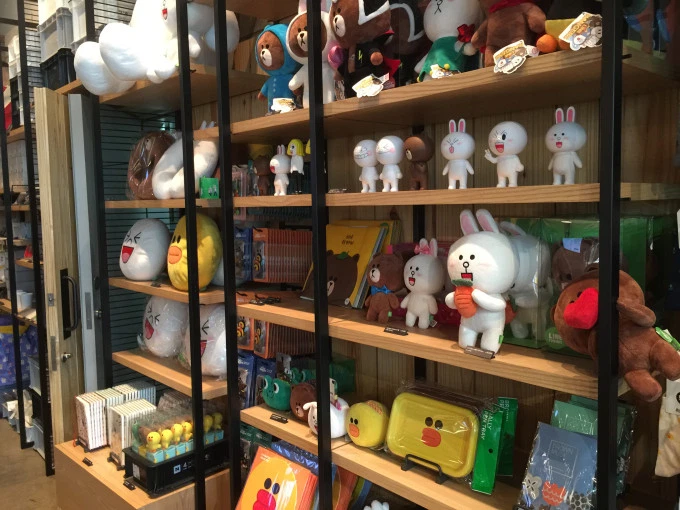
Reddit probably needs no introduction, but just in case: Founded in 2005, Reddit is a social news curation platform that has threads and active members dedicated to almost any subject you can imagine. It’s a forum for discussion, and users can choose to upvote or downvote any contribution to the conversation.
How does this app make money? Reddit does display in-line advertisements and offer a premium subscription. But they’ve also gotten creative with their very own digital currency. At the core of Reddit’s success a sense of community. Reddit allows users to reward each other for their stellar contributions through Reddit Coins. From Reddit’s website, “Coins are a virtual good you can use to award exemplary posts or comments. Support Reddit and encourage your favorite contributors to keep making Reddit better.”
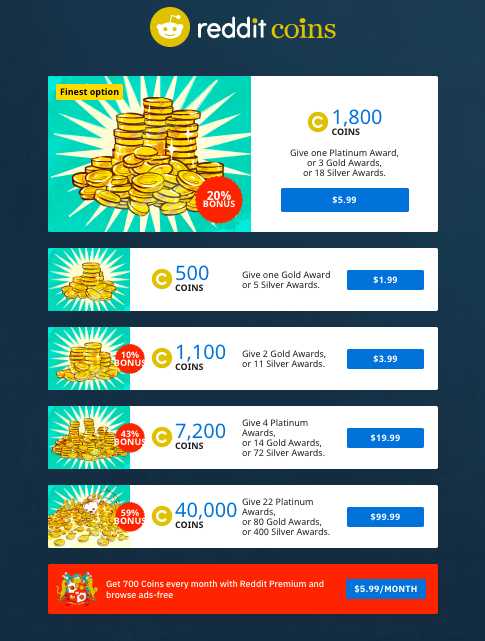
It’s evident that users have come around to the idea of paying for apps. But that doesn't mean every app can get away with charging a fee at the door. The examples above prove that there are plenty of unique ways for apps to turn a profit while still remaining “free.” The chart below highlights all the ways companies plan to capitalize on their free apps in the year ahead:
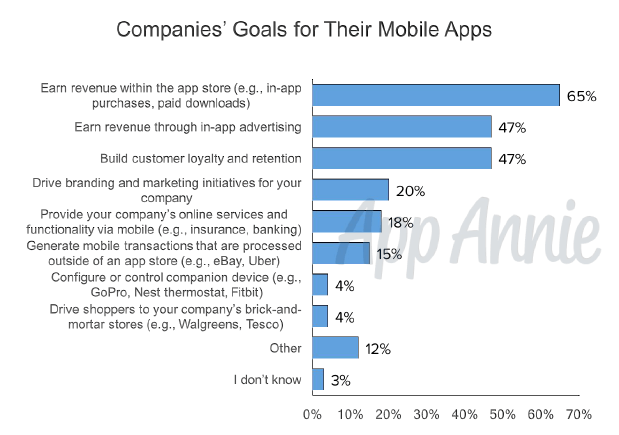
None of this means you should start charging for every feature, or create your own digital currency, or start selling plushies shaped like your company mascot.
App owners should brainstorm ethical ways to make money without compromising user data. Start by focusing on your app’s core value. From there, brainstorm ideas to enhance that value through small, incremental changes. A few hypothetical examples:
Users have come around to these sorts of upsells. So long as the thing they’re paying for provides real value, many users are willing to pay a bit to enhance their favorite apps. The trick is to provide enough value to users before you make the upgrade through a solid free experience that they want to pay more.
For more on upselling and upgrade prompts, check out: